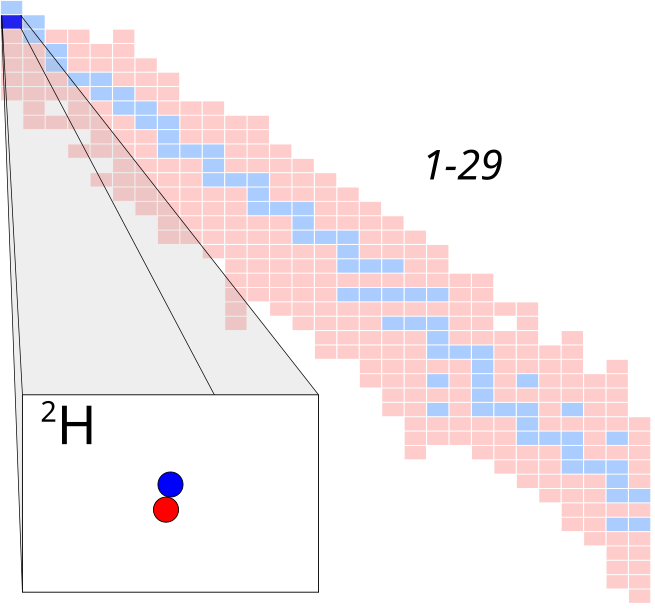Deuteriumnoun
(isotope) An isotope of hydrogen formed of one proton and one neutron in each atom - H.
Deuteriumnoun
An atom of this isotope.
Deuteriumnoun
an isotope of hydrogen which has one neutron (as opposed to zero neutrons in hydrogen)
Deuterium
Deuterium (or hydrogen-2, symbol 2H or D, also known as heavy hydrogen) is one of two stable isotopes of hydrogen (the other being protium, or hydrogen-1). The nucleus of a deuterium atom, called a deuteron, contains one proton and one neutron, whereas the far more common protium has no neutrons in the nucleus.
Tritiumnoun
(isotope) A radioactive isotope of the element hydrogen (symbol T or H) having one proton and two neutrons.
Tritiumnoun
An atom of this isotope.
Tritiumnoun
A radioactive isotope of hydrogen having one proton and two neutrons in the nucleus. It decays spontaneously to Helium-3 by the emission of an electron (beta ray), with a half-life of 12.3 years. Symbol 1H3. Atomic weight 3.01605 (C-12 = 12.0000). It is one of the radioisotopes commonly used to label chemical compounds for use as tracers in biochemistry and chemistry. It is also used as one of the fusionable components of a hydrogen bomb.
Tritiumnoun
a radioactive isotope of hydrogen; atoms of tritium have three times the mass of ordinary hydrogen atoms
Tritium
Tritium ( or , from Ancient Greek τρίτος (trítos) 'third') or hydrogen-3 (symbol T or 3H) is a rare and radioactive isotope of hydrogen. The nucleus of tritium (sometimes called a triton) contains one proton and two neutrons, whereas the nucleus of the common isotope hydrogen-1 (protium) contains just one proton, and that of hydrogen-2 (deuterium) contains one proton and one neutron.










